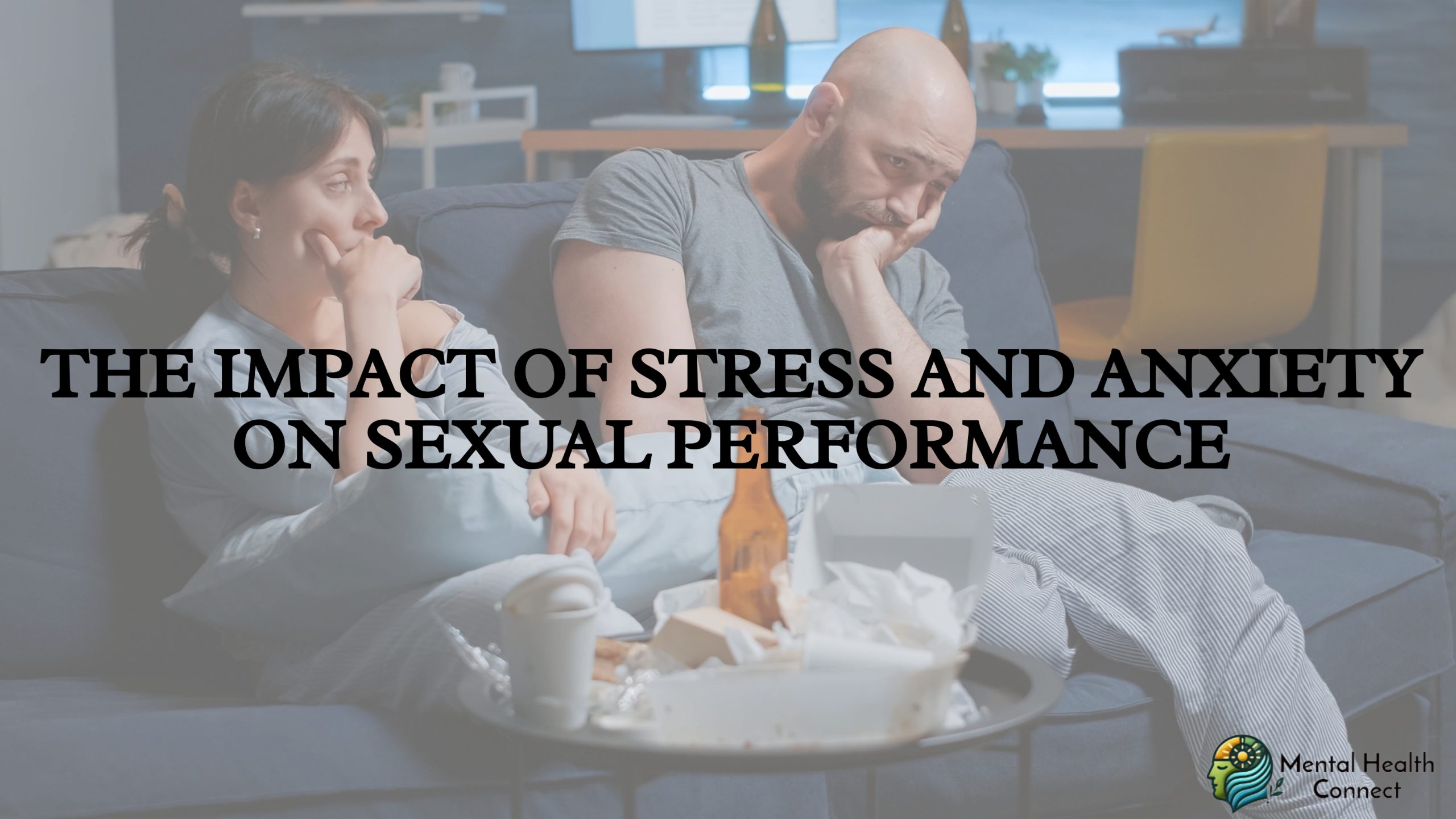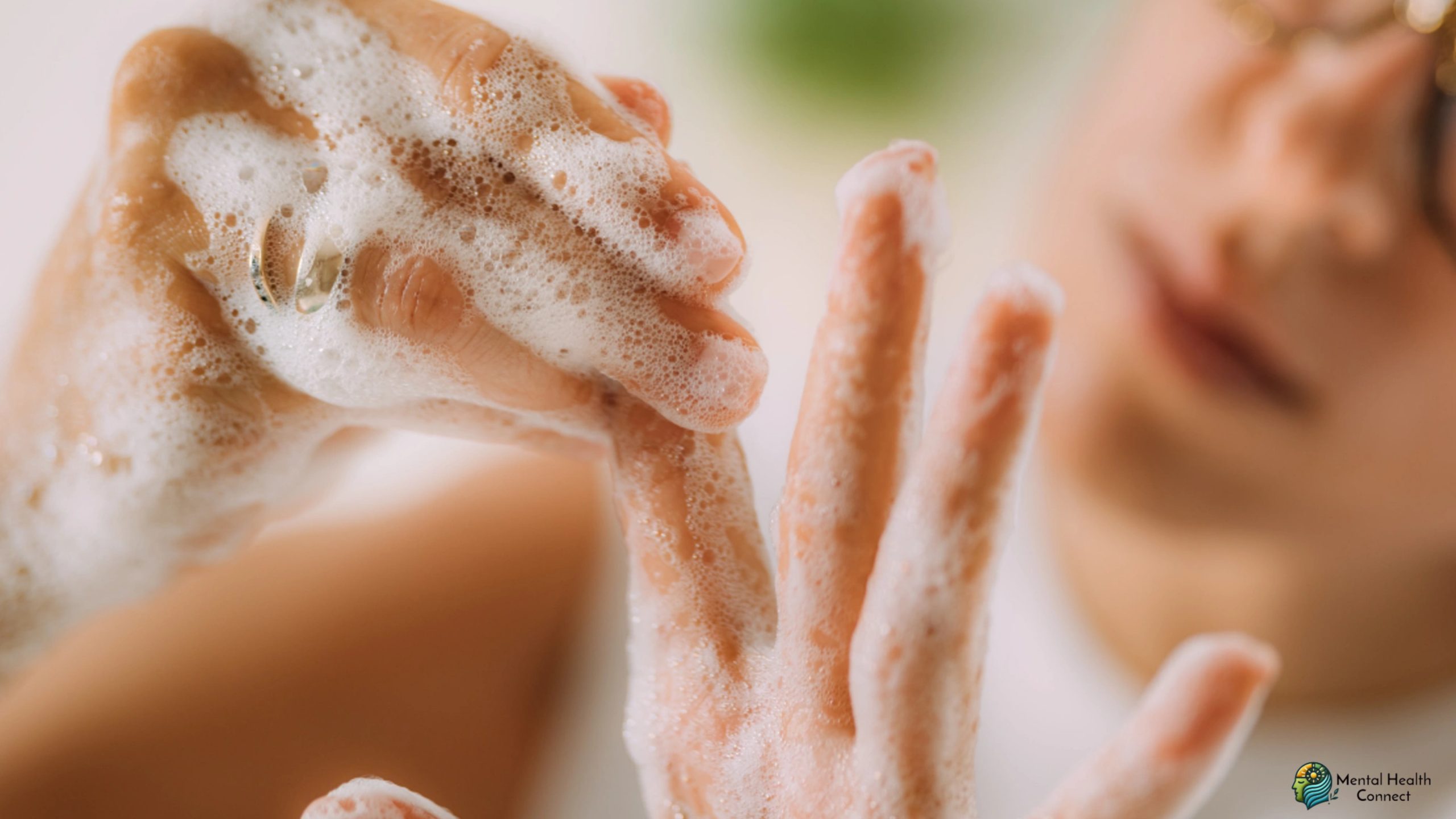The Impact of Stress and Anxiety on Sexual Performance

Have you ever found yourself feeling so overwhelmed by stress or anxiety that it affected your performance in the bedroom? If so, you’re not alone. Stress and anxiety can have a significant impact on sexual performance, making intimacy feel more like a challenge than an enjoyable experience. When the body is under stress, it releases cortisol, a hormone that can disrupt arousal, lower libido, and even lead to erectile dysfunction (ED). Additionally, performance anxiety can create a vicious cycle of fear and avoidance, making sexual encounters more stressful than satisfying.
Understanding how stress and anxiety impact sexual health is crucial for breaking this cycle and restoring confidence. By recognizing the signs and adopting effective strategies such as mindfulness, therapy, and lifestyle changes individuals can take control of their sexual well-being and improve their overall quality of life.
What is the Impact of Stress and Anxiety on Sexual Performance?

Stress and anxiety are natural responses to challenging situations, but when they become chronic, they can interfere with multiple aspects of life including sexual performance.
- Hormonal Disruptions: Stress triggers the release of cortisol, which can suppress testosterone levels, leading to reduced libido and erectile difficulties.
- Blood Flow Issues: Anxiety and stress cause blood vessels to constrict, which can affect circulation and make it difficult to maintain an erection.
- Performance Anxiety: Worrying about sexual performance can lead to a self-fulfilling prophecy, where fear of failure actually causes difficulties in the bedroom.
- Emotional Disconnection: Stress and anxiety can lead to emotional withdrawal, reducing intimacy and making sexual experiences feel disconnected or forced.
Real-World Example
Consider a man who experiences high work-related stress. He starts noticing difficulty achieving or maintaining an erection, which leads to anxiety about his performance. This anxiety further increases stress, making the problem worse. Over time, he may begin to avoid sexual encounters altogether, fearing embarrassment or disappointment.
Why is Understanding This Important?

Recognizing the link between stress, anxiety, and sexual performance is essential for both mental and physical well-being. Here’s why:
- Restoring Confidence: Addressing these issues can help individuals regain self-esteem in their intimate relationships.
- Improving Relationship Satisfaction: Open communication about stress and anxiety can strengthen bonds with partners.
- Promoting Mental Well-being: Managing stress effectively improves overall emotional and psychological health.
- Preventing Long-Term Sexual Dysfunction: Addressing stress-related sexual issues early can prevent them from becoming chronic problems.
How to Manage Stress and Anxiety for Better Sexual Performance

If stress and anxiety are affecting your sexual performance, there are several effective ways to address the issue:
1. Practice Mindfulness & Relaxation Techniques
- Meditation: Daily mindfulness meditation can help reduce stress levels and improve focus.
- Deep Breathing: Techniques like the 4-7-8 breathing method can calm the nervous system.
- Yoga: Regular yoga practice helps balance hormones and improve blood circulation.
2. Seek Professional Help
- Therapy & Counseling: Cognitive-behavioral therapy (CBT) can help individuals address negative thought patterns related to performance anxiety.
- Sex Therapy: Specialized therapists can provide tailored strategies to overcome stress-related sexual dysfunction.
3. Improve Lifestyle Habits
- Exercise Regularly: Physical activity reduces stress hormones and improves cardiovascular health.
- Maintain a Balanced Diet: Eating foods rich in antioxidants, zinc, and magnesium can support sexual health.
- Prioritize Sleep: Poor sleep increases cortisol levels, making stress-related sexual issues worse.
4. Communicate with Your Partner
- Open Discussions: Talking about concerns with your partner can reduce pressure and build trust.
- Non-Sexual Intimacy: Engaging in non-sexual physical affection, like cuddling and massages, can strengthen emotional connection.
5. Consider Natural Remedies
- Herbal Supplements: Adaptogens like ashwagandha and ginseng have been shown to reduce stress and improve sexual function.
- Aromatherapy: Essential oils such as lavender and sandalwood can promote relaxation.
Best Practices for Managing Stress-Related Sexual Issues

Here are some additional strategies to maintain a healthy sex life despite stress and anxiety:
- Prioritize Work-Life Balance – Overworking can lead to chronic stress, so setting boundaries is crucial.
- Engage in Regular Physical Activity – Exercise releases endorphins that counteract stress.
- Focus on Emotional Intimacy – Building a strong emotional connection with your partner can help reduce performance anxiety.
- Avoid Stimulants – Limiting caffeine, alcohol, and smoking can help regulate stress levels.
Common Mistakes & How to Avoid Them
1. Ignoring the Problem
Many people dismiss stress-related sexual difficulties as temporary, but left unaddressed, they can become long-term issues. Seeking help early can prevent complications.
2. Using Alcohol or Drugs as a Coping Mechanism
While alcohol may temporarily lower inhibitions, excessive use can contribute to erectile dysfunction and lower sexual satisfaction over time.
3. Not Seeking Professional Help
Therapists and medical professionals can offer valuable insights and treatment options, including therapy, lifestyle changes, or medication if necessary.
4. Overthinking Performance
Overanalyzing sexual performance can create unnecessary pressure, worsening stress and anxiety. Focusing on enjoyment rather than performance can help.
Future Trends & Predictions
1. Teletherapy for Sexual Health
The rise of online therapy platforms makes it easier than ever to access professional help for stress and anxiety-related sexual issues.
2. AI-Based Mental Health Tools
Artificial intelligence is being used to develop personalized stress management plans and track emotional well-being.
3. Holistic Approaches to Sexual Health
There is a growing focus on natural therapies, including adaptogenic herbs, acupuncture, and mindfulness practices.
4. Advances in Medication & Treatment Options
New medications and non-invasive treatments for stress-related sexual dysfunction continue to emerge, offering hope for those affected.
FAQs
1. Can stress cause erectile dysfunction?
Yes, chronic stress increases cortisol levels, which can interfere with blood flow and testosterone production, leading to ED.
2. How does anxiety affect libido?
Anxiety can lower dopamine and serotonin levels, reducing sexual desire and making arousal more difficult.
3. What are natural ways to reduce stress for better intimacy?
Practicing mindfulness, regular exercise, and open communication with your partner can help.
4. Is performance anxiety common?
Yes, it is a common issue, especially in new relationships or after past negative sexual experiences.
5. Can therapy help with stress-related sexual issues?
Yes, cognitive-behavioral therapy (CBT) and sex therapy are effective in addressing performance anxiety and other stress-related concerns.
6. Does diet impact sexual performance?
Yes, a diet rich in essential nutrients like zinc, magnesium, and antioxidants can improve sexual health.
7. How does sleep affect sexual health?
Poor sleep disrupts hormone production, leading to reduced libido and increased stress levels.
Stress and anxiety can significantly impact sexual performance by disrupting hormonal balance, reducing blood flow, and causing performance anxiety. However, by implementing mindfulness practices, improving lifestyle habits, and seeking professional help, individuals can regain confidence and enjoy a healthier, more satisfying sex life.
If you’re struggling with stress-related sexual issues, don’t ignore them—explore available solutions and take proactive steps toward improvement. Your sexual health is an essential part of your overall well-being, and addressing stress is a key component in maintaining a fulfilling intimate life.
-
 How to Support Someone with OCDApril 17, 2025
How to Support Someone with OCDApril 17, 2025 -


Leave a Reply